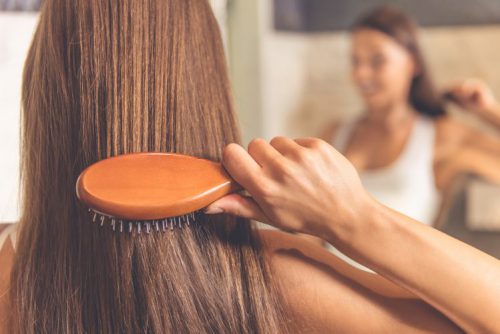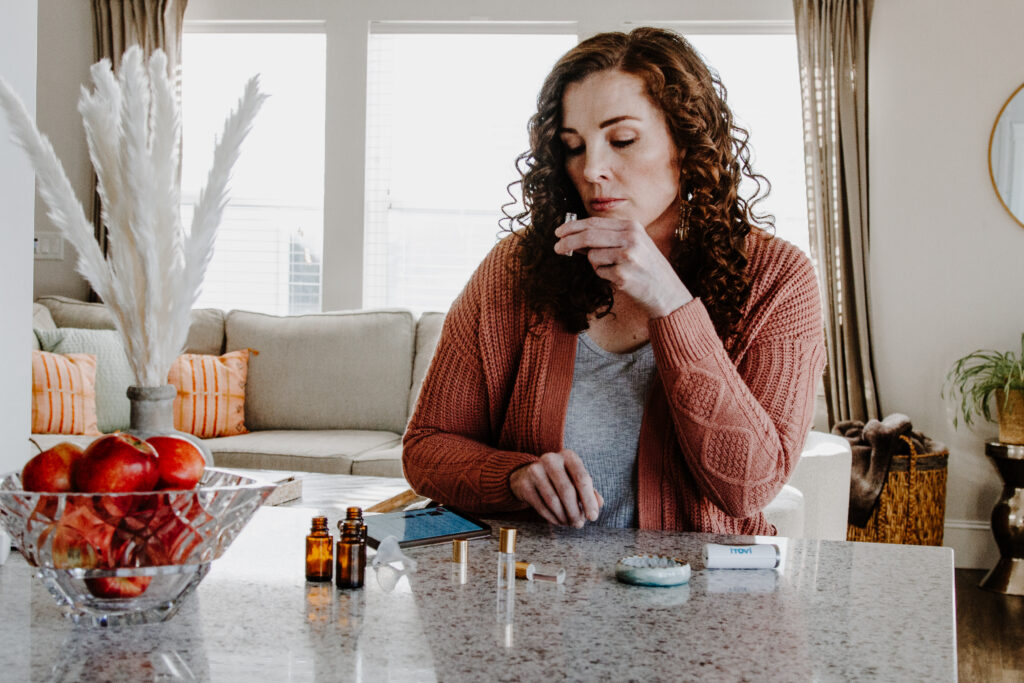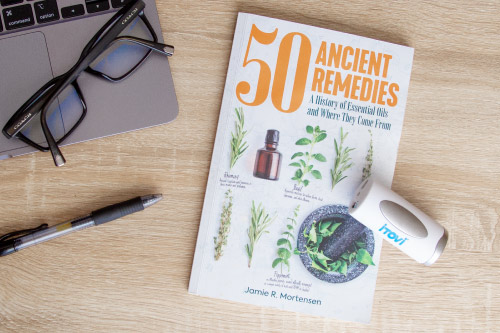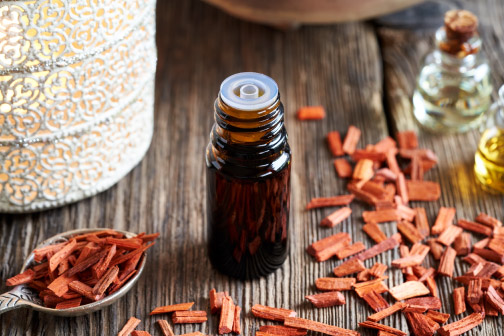
Daily cleansing is considered by many to be the first and most important part of a good facial skincare routine.
But using a facial cleanser isn’t as simple as just picking up a “facial cleanser” at the store and slathering it on your skin every once in a while.
You need to know what kind of cleanser works for your skin type, how to apply it, and, if you like essential oils, know which ones to use and how to use them safely.
Why Use a Cleanser?
A good cleanser, properly applied, does two important things for the health of your skin.
Firstly, it helps free your skin from contaminants! Throughout the day, night, wherever you go, and whatever you do, the pores of your skin can get clogged with tiny particles of dust, dirt, dead skin cells, and excess oil or sebum from your skin. And clogged pores lead to inflammation, acne, and other unpleasant consequences for your skin.
Secondly, cleansers help balance the environment of your skin. Your skin needs the right amount of natural oil and it needs the right level of acidity (pH) to be healthy. If your skin produces/holds onto too much oil or the pH level is too high, your skin will be oily and more acne-prone. If it doesn’t produce/hold onto enough oil or the pH level is too low, your skin may be dry and prone to irritation. But a good cleanser will help keep that pH level balanced!
How Do I Know What Kind of Cleanser is Good for My Skin Type?
Skincare products, either store-bought or homemade, are usually targeted at one of three skin types:
| Skin Type | Description | Cleanser recommendations |
| Dry/Sensitive Skin | Skin is rough, flaking, cracked, and/or reddened.
Dry climates may exacerbate this skin condition. |
Use gentle cleansers that will raise your skin’s pH levels.
Cream and oil-form cleansers are often best for this skin type. Avoid heavy foaming cleansers. |
| Oily Skin | Skin is overly shiny with large pores and persistent blackheads.
Humid climates may exacerbate this skin condition. |
Use oil-free and foam cleansers, with anti-bacterial ingredients like benzoyl peroxide, glycolic acid, or salicylic acid.
Avoid moisturizer-packed or greasy cleansers. |
| Combination Skin | Skin presents symptoms of both dry skin and oily skin.
(Oily skin is most likely to be found around the chin, nose, and eyes. And dry skin is more likely to appear elsewhere.) |
Use gentle, water-based gel or micellar cleansers.
You may try spot-treating oily zones with a separate cleanser. |
Of course, these are just broad categorizations. You may want to take some time to experiment and find the facial cleanser that works best for you.
How to Use Your Cleanser
Usually, it is best to gently wash your face with lukewarm water and then apply your cleanser to the wet skin. After applying your cleanser (it’s best to let it sit/be rubbed into your face for about 60-90 seconds) rinse all the cleanser off your face and then pat your face dry with a clean towel.
*Note that if your skin is very, very dry and sensitive, you may choose to not wet your face before applying your cleanser.
Can I Use Essential Oils in My Cleanser?
Some oils, yes. If you use them safely.
See our Blogpost: The Basics of Skin Care & Essential Oils for general safety considerations and read on to learn the specific safety considerations for essential oils in facial cleansers.
The oil you choose to use in your facial cleanser will depend on your skin’s needs and sensitivities. Some oils may be too strong for your sensitive skin. Others may not mix too well with oily skin. Still others will do better in a toner or as a spot-targeting serum, rather than in a cleanser.
To find the essential oils that work for YOU in a cleanser:
- Do your research
- Do patch tests
- Be willing to, while still following safety protocols, experiment.
To get you started, here is a breakdown of a few oils that are often used in cleansers:
| Essential Oil | Pros | Cons |
| Tea Tree Oil |
|
|
| Helichrysum Oil |
|
|
| Peppermint Oil |
|
|
| Rosemary Oil |
|
|
| Frankincense oil |
|
|
| *Note: Popular ingredients for homemade cleansers also include: Honey, castile soap, milk, oatmeal, lemon, rose water, and vegetable glycerin | ||
| Learn more about specific essential oils, their benefits, contraindications, and more here. | ||
What about Double Cleansing?
Double cleansing is an extra thorough method of cleansing skin. And it is growing in popularity!
The idea is to use an oil-based cleanser first, massage it into your skin for about a minute, rinse it off with lukewarm water, and then repeat the process with a water-based cleanser.
(If you want to use essential oils in your double-cleansing routine, we recommend diluting your oil only in the oil-based cleanser and using the water-based cleanser by itself.)
This method is said to work because oil-based cleansers do a better job of getting makeup, excess sebum, and other pollutants off your face. And then the water-based cleanser can go even deeper, work its way into the skin, and clean out the pores.
Double-cleansing, if you use gentle ingredients, is said to work well for all skin types and perhaps especially well for those who deal with acne breakouts!
And another benefit to double-cleansing is—the better cleansed your face is, the more effectively your skin will be able to absorb later solutions, such as toners, moisturizers, or serums!
Conclusion
Cleansing your skin daily is a wonderful act of self-care.
It allows you a simple and practical way to invest in yourself, your appearance, and your health. And we all know how good it feels to just feel clean at the end of the day!
And though they should be used with caution, essential oils do offer a way to heighten and enhance your cleansing routine just a little bit!
If you liked this review on essential oils and facial cleansers, we encourage you to leave a comment and check our other blog posts:
Essential Oils & Facial Cleansers
Essential Oils & Facial Exfoliation
Essential Oils & Facial Toners
Essential Oils & Facial Serums
Essential Oils & Facial Moisturizers
s




